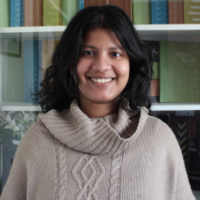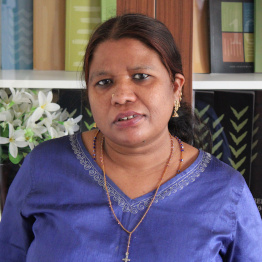So it’s finally Brexit.
By a 52-48 margin at the referendum, voters in the United Kingdom (U.K.) voted to leave the European Union (EU). While there are varied reactions to the Brexit verdict, some paradoxes appear to have escaped public attention. One of them is related to how the U.K. farmer voted at the referendum given his/her deep entrenchment within the Common Agricultural Policy (CAP) framework of the EU.
Within the U.K., Scotland voted Remain by a 62-38 margin, Northern Ireland voted Remain by a 56-44 margin, while Wales voted Leave by a 53-47 margin. England voted overwhelmingly to leave. Farmers populate Northern Ireland and Wales more than they populate Scotland and England. Yet, these two countries appear to have voted differently on Brexit. In fact, as reports show, farmers are equally represented in the Remain vote (as in Northern Ireland) and in the Leave vote (as in Wales and England). For an excellent read, see “Betting the Farm on Brexit? Farmers Divided on EU Referendum” in The Guardian.

Consider the following. Official data show that in 2014, the share of agriculture in total employment was 1.4 per cent in the U.K.. In all, about 476,000 people worked on agricultural holdings in the U.K. in 2014. Northern Ireland, Wales and Scotland had relatively high shares of agricultural employment in their total employment. In Northern Ireland, the share was 5.8 per cent, in Wales it was 4.2 per cent, and in Scotland it was 2.5 per cent. Further, in Wales, Scotland, and Northern Ireland, the share in total farmland of “less favoured areas” was high: 84 per cent in Scotland, 77 per cent in Wales and 70 per cent in Northern Ireland. In other words, because of upland and hilly conditions, the average land plot had lower agricultural yields than, say, in the plains of England. Farmers in “less favoured areas” receive special support from the Common Agricultural Programme (CAP) of the EU.

The CAP was formulated as part of the formation of the European Economic Community (EEC) in 1957 as a support to European farmers, who feared that they would lose incomes if goods moved freely across the EU. Initially, price support was the CAP’s policy instrument of choice. When price support policies led to overproduction in the 1970s, the CAP moved from price support to product quotas and direct payments to farmers. By 2000, the CAP took the reformed shape of the “Rural Development Support” (RDS) scheme, where rural Europe as a whole became the focus of support. Under the Single Payment Scheme (SPS) of the RDS, applicable between 2007 and 2013, farmers received a subsidy support based on the type of land possessed. Under the new Basic Payment Scheme (BPS) of the CAP, applicable between 2014 and 2020, the SPS was modified to base direct payments on the area of land possessed (and not the type of land). The new CAP additionally included a greening payment and a young farmer payment (the average age of a U.K. farmer is almost 60 years).
In 2015, the total direct payment to farmers in the U.K. under the SPS or the BPS amounted to a huge £2176 million. The total CAP payment, including other payments, was even higher: €4109 million. Scotland received around €800 million, Wales received about €367 million and Northern Ireland received about €410 million in total.
For example, look at the figure below that I have borrowed from a report of the U.K.’s National Farming Union (NFU). In 2014-15, a huge proportion of farm business incomes of the U.K.’s farmers came from the SPS, payments for diversification out of agriculture and payments for agri-environment.

There is more. According to the NFU, if one considered food, drink and feed together, 7 out of the top 10 countries to which the U.K. exported to were from the EU, and 9 out of the top 10 countries from which the U.K. imported were from the EU. About 38 per cent of lamb produced in the U.K. was exported to countries within the EU in 2014. After Brexit, there will be no special consideration on duties imposed on either exports or imports. EU countries may raise duties on imports from the U.K., thus pricing out the U.K.’s farm products from these markets.
No wonder then that one writer noted: “Brexit is plainly an agrarian minefield.”
Quoting a report from consultants Agra Europa, Ambrose Evans-Pritchard pointed out in The Telegraph in 2015 that “a fifth of cereal and grazing livestock farms failed to make a profit” in the U.K. in 2013-14. If Brexit occured, farmers in the U.K. would lose the CAP payments and a major proportion of them would record losses. To quote him:
The consequences would likely be that land prices would fall, banks would foreclose on loans based on high land prices, and bankruptcies would be widespread. The numbers of small and medium-sized family farms would further decline and agriculture would become even more industrialised. Only large units with low marginal costs would be able to survive on a fluctuating and uncertain world market. U.K. food self-sufficiency would fall.
Further, the impact of Brexit will be regionally uneven. Evans-Pritchard noted that “per capita reliance on EU farm subsidies is three times higher in Scotland and Wales, and four times higher in Northern Ireland.” Nevertheless, as it turned out, Wales (along with England) voted Leave in the referendum.
The foregoing gives us an idea of points raised by Remain campaigners. By contrast, the Leave campaigners argued that, if Brexit were to be a reality, support to agriculture may actually increase. Evans-Pritchard quotes a Leave campaigner who says:
“Farmers and fishermen should receive exactly what they received before for at least five years. We should recruit the excellent agricultural colleges of Cirencester, Reading, and Manchester, and those in Scotland, to invent a new model of subsidies. We paid £12.3bn into the EU budget in 2014, which we would no longer have to pay, so there would be more than enough money.”
The Guardian quoted another campaigner:
“I fail to see why that [EU] market will disappear. That’s part of the project fear campaign. People trade, the world trades. We are an island nation. We have traded from time immemorial. I think it’s a fallacy to say that Europe will turn its back on the fifth biggest economy in the world. People need to be a bit braver rather than grabbing for this comfort blanket, which actually hasn’t been particularly comfortable for years. Britain is a great nation state that can stand on its own two feet.”
In a post-Brexit report, the ITV quoted a farmer from the North West as saying: “This is our equivalent to Independence Day and I can see this going down as a national holiday.”
But there is more to the Leave campaign in rural areas than the CAP subsidies. In a recent essay in the London Review of Books, James Meek notes that “subsidy is salvation” for an average farmer in the U.K. To substantiate the point, Meek makes the following observation about a farm in Norfolk:
That same field yields just over £1800 in CAP subsidy, almost a fifth of the current value of the crop. And although the subsidy fluctuates with the exchange rate – it’s fixed in euros, but paid in pounds – it’s more stable and reliable than the price of wheat, which, in the past nine years, has twice doubled and twice halved, sometimes from one year to the next.
Yet farmers seem to have thought differently. Meek’s notes from his visit to the farm of Lord Townshend in Norfolk are insightful indeed. Let’s first get introduced to the Townshends:
The Townshend family still owns the airfield; the solar farm, one of a string around the U.K. owned by a specialist investment fund, pays rent to the estate. In its heyday the estate had forty thousand acres. It’s shrunk to five thousand today, although that’s enough to bring the Townshends a subsidy of £360,000.
Meek notes that he
asked Lord Townshend about the scenario where, post-Brexit, farm subsidies were slashed, and farmers deserted the land en masse. “The idea that a loss of subsidies would lead to the dereliction of the countryside is defeatist,” he said. “I just feel we have been, throughout history, able to get through any problem thrown at us by politics, and I don’t see why we shouldn’t be able to continue to do it. I’ve enough confidence in our abilities to survive in England, based on our history, that we will do the right thing if subsidies disappear. We will still survive. And farm.”
Lord Townshend’s is the typical view of a secure large farmer. Meek reminds us of the three major classes in the Norfolk countryside, groups that he covers under the phrase “hierarchy of security.”
There’s a hierarchy of security even among farmers working relatively large farms. The most secure are the landowner-farmers, like the Townshend family or the big companies growing fruit and vegetables over thousands of acres in Lincolnshire and Cambridgeshire. Next come farmers with long-term tenancies; like Stuart Agnew, they can still call a farm their own, even if they don’t own the land. Finally there are contractor farmers: farm managers and workers hired job by job, season by season, who take a wage to work land for somebody else. To make the leap from contractor to fully fledged farmer takes backing, or an inheritance. Farms big in acreage can still be very small businesses in terms of employees, and they are often family businesses.”
To be certain, Meek’s hierarchy does not include the final layer at the farm-level: the immigrant workers from Eastern Europe. But from here, Meek hypothesises on a post-Brexit state:
Theoretically, a withdrawal of subsidies for British farmers could open up new opportunities as the price of farmland fell and existing farmers sold up. But most of the insiders I spoke to felt it would simply speed up a process that was already under way, of consolidation, of small and medium farms being absorbed by larger ones. “The bigger farms are getting bigger,” Lake said. “The days of the small family farm are numbered. Your traditional mixed farm, where you’ve got land, some cows, some pigs, some sheep, are pretty much over. You have to go big or go home.”
Why then did many U.K. farmers vote for Brexit? Stuart Agnew, the long-term tenant in Meek’s hierarchy example, was the farming spokesman of the UKIP, whose leader Nigel Farage was a Brexit warrior. Agnew had received about £40,000 in CAP subsidy in 2015. But Agnew has hard views on immigration:
. . . Agnew talked about immigration. About immigrants from Eastern Europe disrupting the orderly running of schools and hospitals in Lincolnshire “by sheer force of numbers.” About farms needing cheap Eastern European labour, so EU immigrants already in Britain shouldn’t be sent back, but should be closely observed for five years, and deported if they misbehaved.
Immigration thus enters the analysis. That may be why Will Davies, in his June 2016 article “Thoughts on the Sociology of Brexit”, wrote that “handouts don’t produce gratitude.” According to him:
. . . it seems unlikely that those in these regions . . . would feel “grateful” to the EU for subsidies. Knowing that your business, farm, family or region is dependent on the beneficence of wealthy liberals is unlikely to be a recipe for satisfaction . . . More bizarrely, it has since emerged that regions with the closest economic ties to the EU in general (and not just of the subsidised variety) were most likely to vote Leave.
Let me end with a conversation that James Meek reports with another farmer:
As I was leaving he told me I’d forgotten to ask a question.
“What?”
“Which way I’m going to vote in the referendum.”
“Which way are you going to vote?” He’d already told me that post-Brexit the fight to control the countryside would intensify.
“Out.”
“Why?”
“It’d be bad for farming, but there are some things more important than farming.”
“What things?” He wouldn’t say.
“What things?” may be the question that social scientists will have to ask in the coming days.
About the author
R Ramakumar is a Professor at the Tata Institute of Social Sciences, Mumbai.


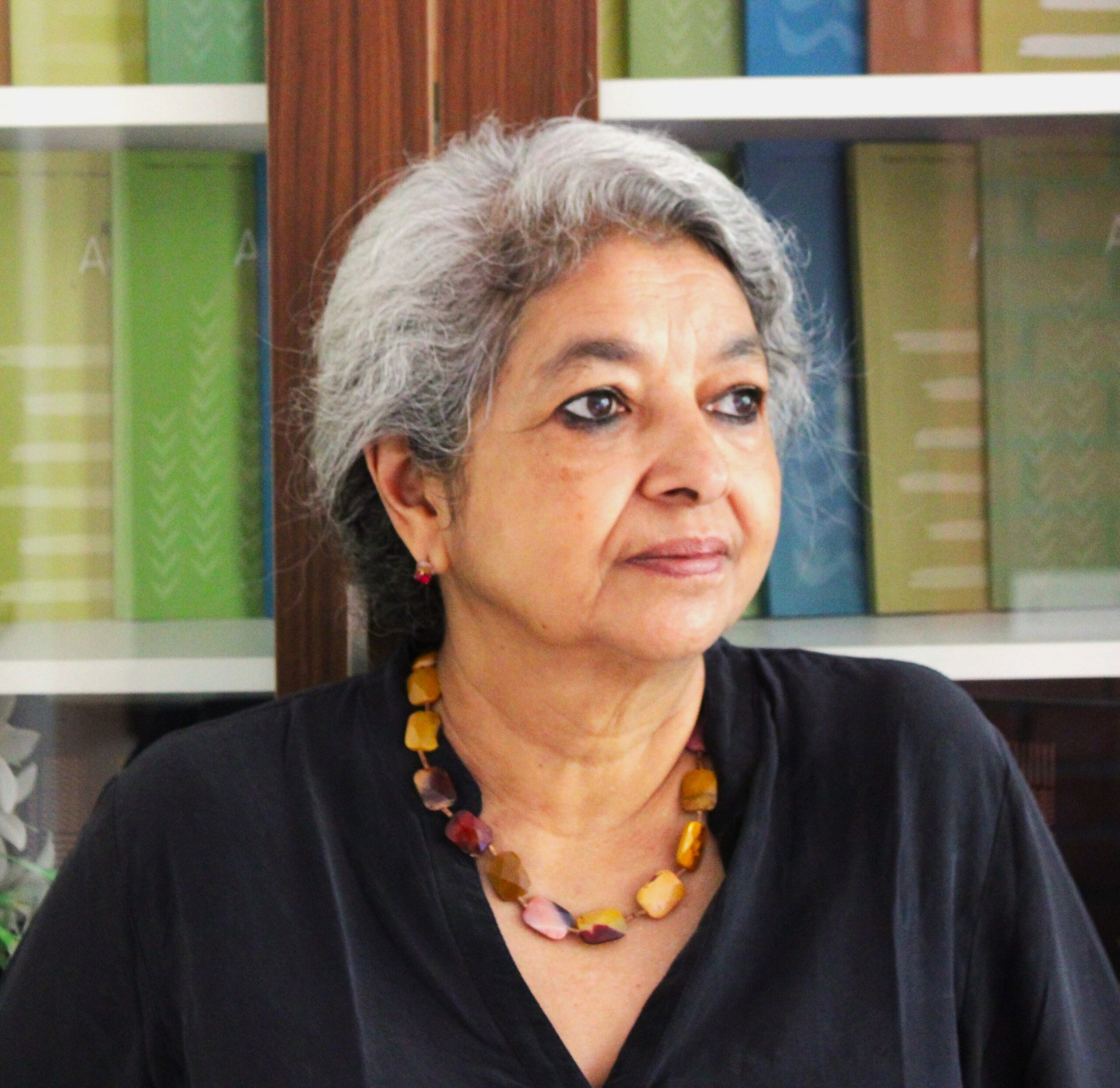





















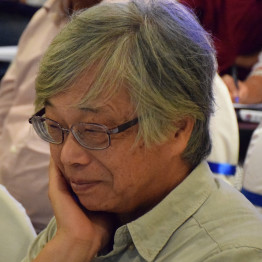
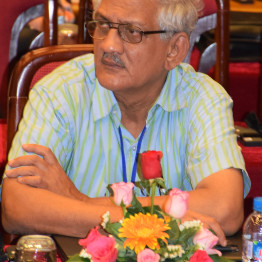
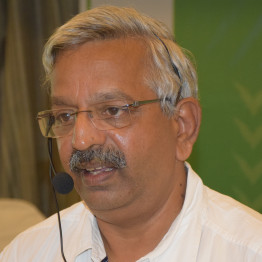

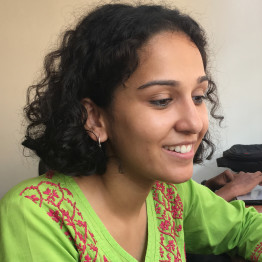


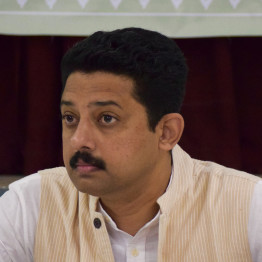


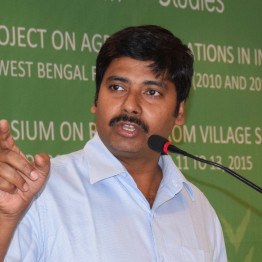










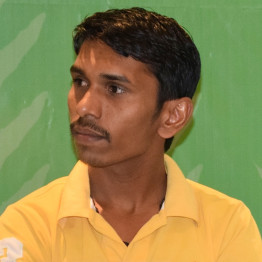
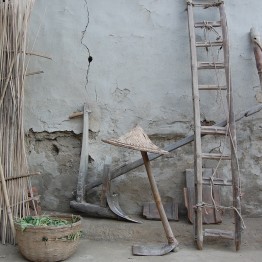

 Sudha is an Administrative Assistant of the Foundation. She assists the administrative division of the Foundation and also has taken part in fieldwork organised by the Foundation.
Sudha is an Administrative Assistant of the Foundation. She assists the administrative division of the Foundation and also has taken part in fieldwork organised by the Foundation.








